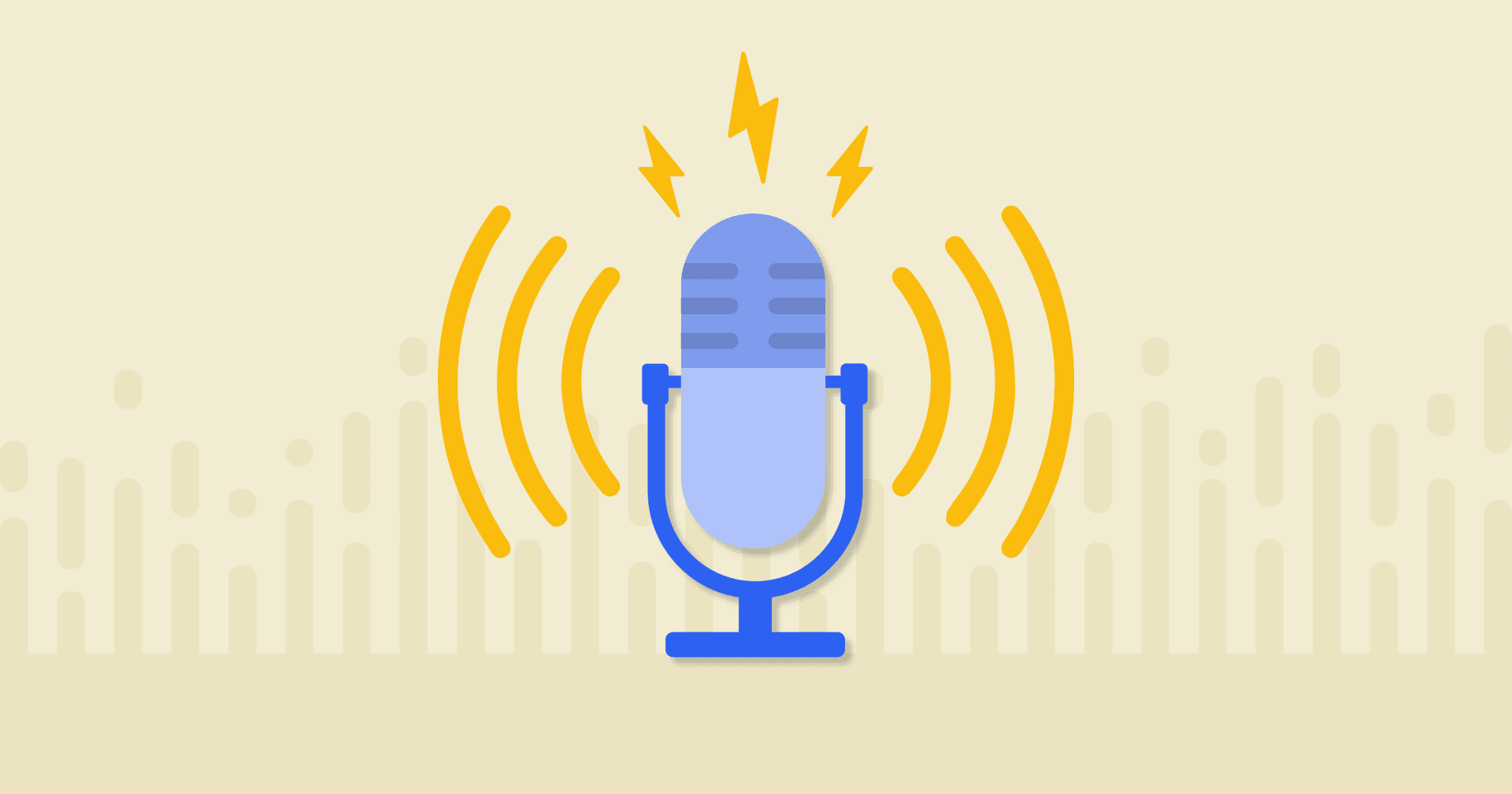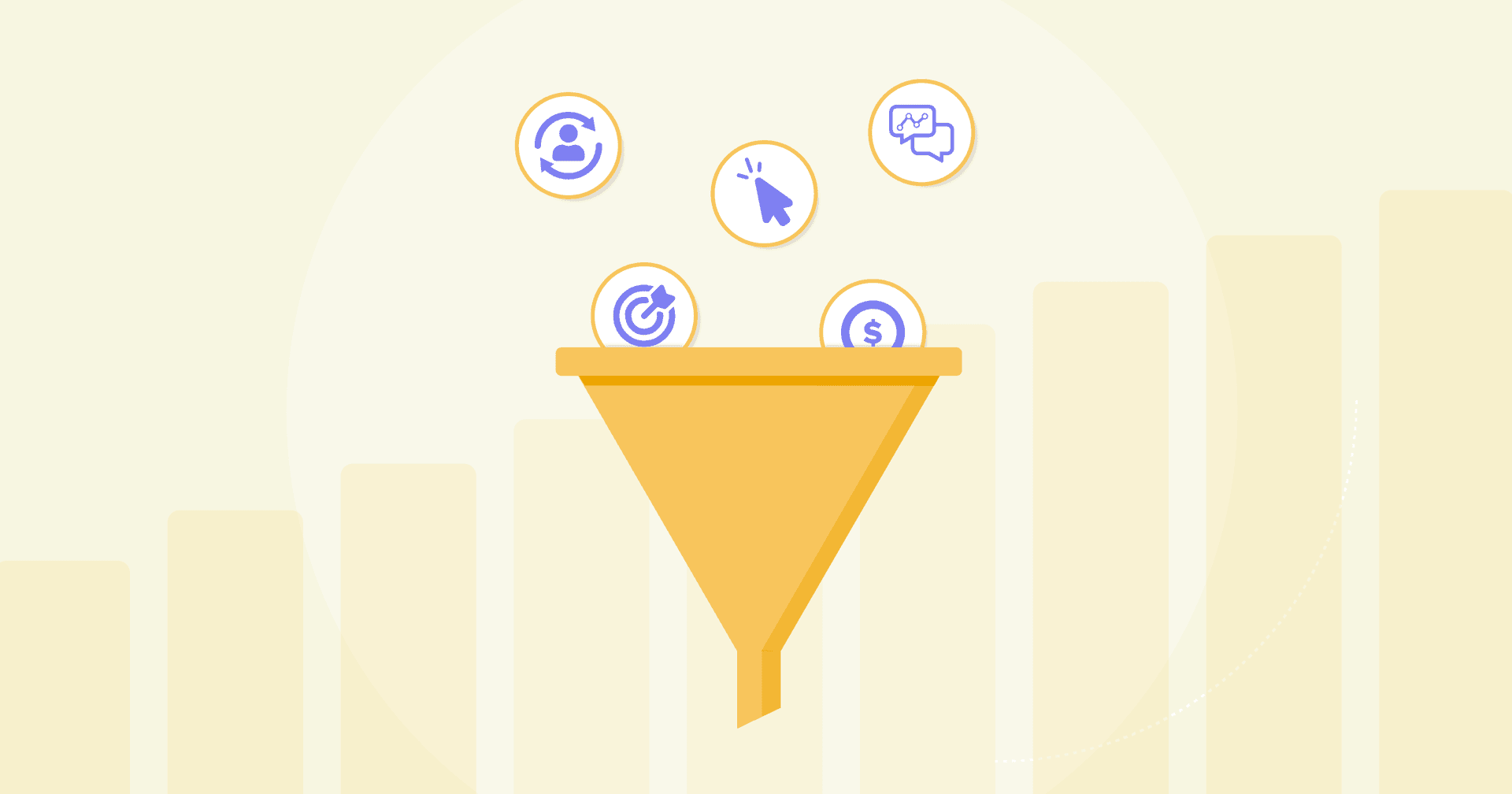Table of Contents
QUICK SUMMARY:
Podcast metrics provide insights into podcast performance, highlighting growth in streams, subscriptions, and the listener base. They reveal audience preferences, geographic data, and the podcast's impact on leads and revenue. This guide highlights the importance of tracking metrics to help marketing agencies make informed adjustments for content improvement.
When was the last time you listened to a podcast? If you’re like most business leaders, your answer might be “earlier today”. 51% of B2B audiences tune in to podcasts daily, making it an invaluable tool for marketing agencies and their clients alike. Creating a podcast for your agency or for your client’s business is a great way to establish a brand voice, create a strong platform, and cultivate a community of listeners.
As you script, record, and produce podcast episodes, you’ll want to make sure you’re stopping in between each one to evaluate podcast performance. Podcast metrics like subscriptions, listener retention rate, and attrition rate are extremely important to know in order to optimize a podcast to see the best results.
Today, we’re taking a closer look at which podcast metrics are most important to track, and providing tips for agencies to maximize podcast performance.
How Popular Are Podcasts?
Today, it seems like everyone has a favorite podcast. But how popular are podcasts, really—and what do the numbers mean for your agency?
Here are some handy podcast statistics:
In 2023, 464.7 people listened to podcasts worldwide. By the end of 2024, that number is projected to reach half a billion.
The podcast industry is currently worth $23.56 billion.
Since 2019, the number of podcast listeners has increased from 274.8 million to 504.9 million in 2024.
Over 80% of podcast listeners spend more than seven hours a week listening to podcasts.
The total estimated advertising revenue on podcasts will likely reach $4 billion in 2024.
Benefits of Podcasting
It’s clear that podcasts are popular—and this media format isn’t going away any time soon. Depending on the topic and industry, it’s possible to start a podcast with minimal upfront investment and start reaping the rewards, making it an appealing option for brands eager to enhance their engagement with customers and increase their standing as subject matter experts. There are several benefits to hosting a podcast–let’s take a closer look at some of the most enticing:
Generate Inbound Leads
56% of podcast listeners will consider making a purchase after listening to a brand’s podcast ad. And regardless of whether you use your podcast to clearly promote your agency, a podcast is an excellent tool to gather inbound leads. Podcasts act like any other piece of media (for example, a blog)—they establish a brand’s platform and point people to other resources on the website where they might take a next step.
Prove You’re the Expert
People trust podcasts. 87% of Americans believe the information they hear on podcasts is accurate, as compared to the much lower 39% rating given to social media. Most Americans trust news from podcasts as much as they trust news from other sources, if not more.
For you (and your clients), this means one thing: You should be treating podcasts as a valuable method of establishing expertise. Use a podcast to share thought leadership content, and discuss timely issues from the industry you or your client operates within. Listeners will come to rely on the hosts and trust them for accurate, helpful information.
We share knowledge freely very often with blogs, courses, resources, podcast appearances, guest lecturing, public speaking, etc., so potential clients can see a glimpse of the real expertise we have.
Lane Anderson, Founder & CEO, London Road Marketing
Cement Audience Loyalty
A podcast is a great way to cultivate an engaged, committed listener base. As you consistently deliver expert content that speaks to the pain points of the audience, they’ll continue to tune in, becoming loyal brand ambassadors. Hopefully, they’ll also convert into leads… and the cycle of podcast benefits starts all over again.
What Makes A Podcast Successful?
Having a podcast is one thing. Having a successful podcast is another. By cultivating a loyal base of engaged listeners, brands share their expertise and generate more leads. But it takes some elbow grease to get there.
We are big, big, big content producers. That's one of the things that really separates us from other automotive marketers. We do a lot of teaching all across the industry. We go to all of the conferences and trade shows. We’ll be at 10 this year, and so we put on classes and trainings. Then we do our blogs. We have a podcast that's going very, very well, that people tend to follow. And so we just try to be a magnet, right? Attract those perfect shops. That's how we expand and grow our pipeline.
Kim Walkers, Co-owner, Shop Marketing Pros
Let’s take a look at what defines good podcast performance and how to measure podcast success.
Why Should Your Agency Measure Podcast Analytics?
Podcast analytics help your agency measure podcast performance. By tracking podcast metrics, you’ll be able to hone in on important data such as:
Growth of streams, subscriptions, and listener base.
Areas for improvement from audience feedback.
Where listeners are from and when they listen.
How the podcast is affecting leads, web traffic, and revenue.
As a result, your agency will make informed, smart decisions about changes to podcast content, schedule, or other factors that will help the key metrics improve. You’ll also keep the big picture in mind—set podcast goals, work toward them, and then track progress using podcast analytics solutions to indicate what’s working and what’s not.
Impress clients and save hours with custom, automated reporting.
Join 7,000+ agencies that create reports in under 30 minutes per client using AgencyAnalytics. Get started for free. No credit card required.
Already have an account?
Log inIn the next section, we’ll discuss the most important podcast metrics and analytics to track. But first, your agency needs to know where to find them. Podcast hosting platforms like Apple Podcasts, Spotify, and Google Podcasts all feature helpful tools to analyze the performance of podcast episodes.
Apple Podcast Analytics
Apple Podcasts Connect displays information such as the number of listeners, what demographics they fall into, and how much time they spend listening to the podcast. A monthly subscription report contains updates from the past 30 days, and allows you to hone in on detailed information such as whether people skip the podcast intro, or at what point they stop listening to an episode. This kind of information will have a large impact on a podcast’s success, allowing your agency to make adjustments accordingly.
Spotify Podcast Analytics
Spotify For Podcasters is an all-in-one platform to access user interaction and listening behavior. From play count to audience retention to demographics, Spotify provides virtually everything you need to know about podcast performance.
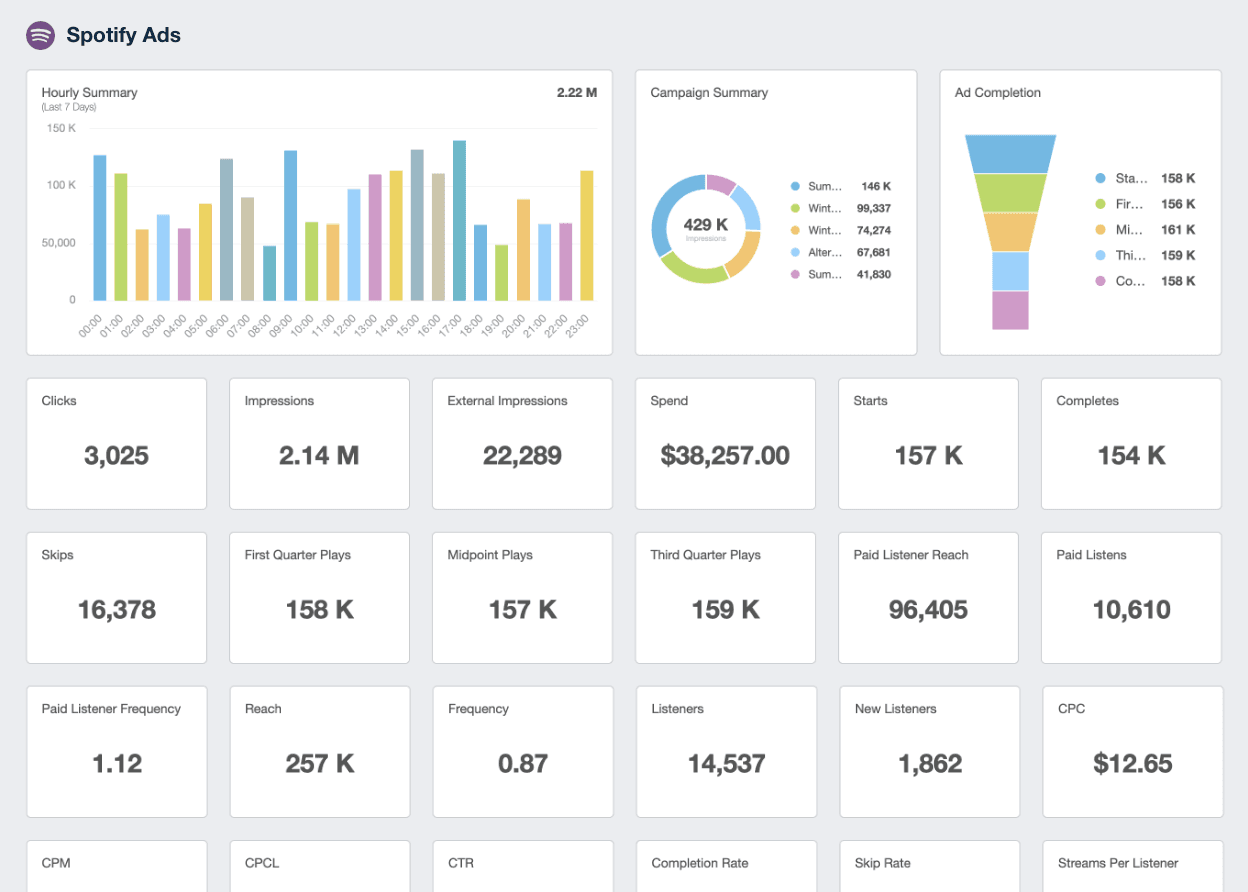
Connect your client’s Spotify Ads account and visualize performance data alongside metrics from more than 80 marketing platform integrations. Try AgencyAnalytics free for 14 days.
Google Podcast Analytics
View analytics for Google Podcasts in the Google Podcasts Manager. Similar to Apple and Spotify, Google shows you information such as how long people listen to episodes, what devices they’re using, and how they interact with the content on Google Search. It’s also easy to track performance data like total plays and minutes played.
Key Podcast Performance Metrics
Tracking podcast metrics is the best way to evaluate podcast performance and help it improve. And thanks to tools from Apple, Spotify, and Google, there are plenty of easy ways to keep up with your podcast analytics. The big question: What are the most important metrics to track?
As you start digging into performance metrics, keep in mind the difference between KPIs vs. metrics. Both measure performance. But while metrics can be any type of data, a Key Performance Indicator (KPI) relates to your biggest and most important goals. All KPIs are metrics—but not all metrics are KPIs.
With that being said, here are the most important podcast performance metrics to track.
ROI
Return on investment (ROI) indicates how profitable a podcast is compared to the amount of resources that have been poured into it. In launching a podcast, there are several expenditures that can be expected. Depending on the complexity of the edits and the style of the podcast, dollar amounts vary. But in general, your agency can anticipate investing in the podcast with resources like:
Audio recording equipment
A freelance editor
A podcast hosting platform
On the other hand, money is earned from a podcast with methods including:
Advertising revenue
Driving web traffic and sales
Sponsorships
Once you know the expenses and the earnings of the podcast, calculate podcast ROI using the following formula:
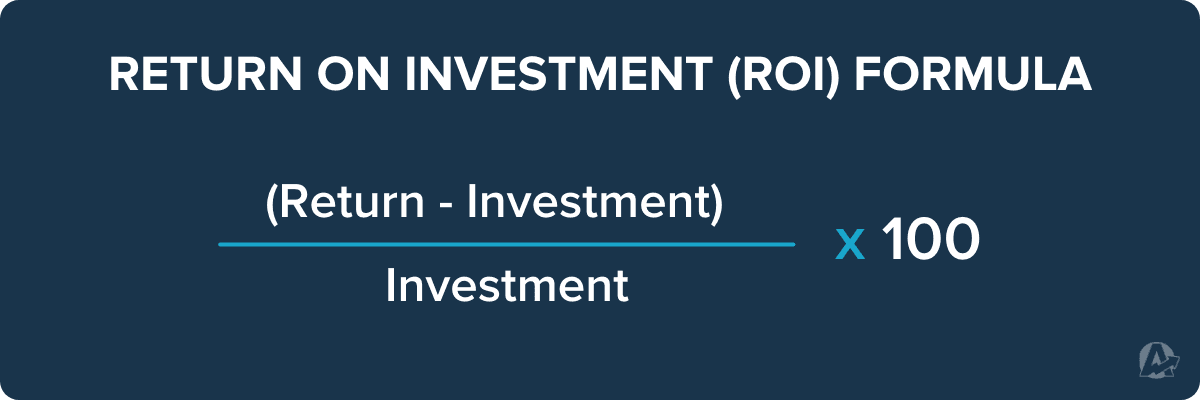
For example:
($600 of product revenue from one episode - $250 spent on editing and recording that episode) / $250 x 100 = 140% ROI)
Subscriptions
The next podcast metric we recommend is the total number of subscriptions. This simply indicates how many people have subscribed to the podcast and receive a notification each time a new episode drops. Knowing how many subscribers a podcast has will help to gauge the total size of the target audience.
Listens Per Episode
In addition to the total number of subscribers, you’ll also want to track podcast listens—the number of times an individual episode has been played. This helps to determine the podcast's reach as well as how engaged the audience is with the content.
Downloads Per Episode
Downloads per episode refer to how many people have downloaded a certain episode of the podcast to their app or device. This doesn’t necessarily mean they’ve listened to it—but they have downloaded it. Tracking listens per episode and how many downloads per episode helps measure overall audience engagement, the podcast's popularity, and listener loyalty.
Downloads Over Time
Downloads over time is a podcast metric that illustrates how many people download an episode on an ongoing basis. The more downloads received, the better! This means your agency has done a good job of creating content that’s evergreen and resonates with an audience for the long-term.
Average Listening Time
Keep an eye on average podcast listening time to understand how well the target audience engaged with the podcast by tracking how long people spend with the content. If listeners consistently drop off following the introduction (or early in the podcast), it’s a sign to explore new ways to enhance audience engagement and better align the content with audience interests.
Listener Location
What country and city are podcast listeners from? Are they local, or based all around the world? Keep an eye on this demographic info to ensure you’re attracting the correct audience. For example, if your agency is creating a podcast for a local home services business based out of Albuquerque, New Mexico, landing piles of downloads in Paris, France won’t do them much good, but getting more listeners in the local area is a win!
Listener Retention Rate
Listener retention rate shows how much of the audience is sticking around to listen to additional episodes. Ideally, as you continue to create and distribute new content, listeners should be staying—they’re engaged with everything your agency has to offer. Tools from Google, Spotify, and Apple Podcasts help visualize your listener retention rate over time.
Total Podcast Website Traffic
Is your podcast driving traffic to the website? Include a website link in the podcast description, and add a CTA in both the description and the podcast itself to encourage people to visit the location where they might convert (by making a purchase or joining an email list).
Reviews
How many reviews is the podcast receiving? Where are people leaving those ratings and reviews—and what are they saying? Both negative and positive reviews provide invaluable feedback to take to heart for future episodes. And the higher the number of reviews, the more likely the podcast is to show up on streaming platforms.
Backlinks
Track how many backlinks the podcast is getting (where another website links to the podcast) and where these links are coming from. Ideally, you want a high number of links from quality websites. This will improve both the podcast’s reputation and the SEO.
Attrition Rate
Attrition rate shows the percentage of listeners who have unsubscribed from a podcast. A low attrition rate is best! If the attrition rate is high, your agency may need to take another look at the content of the podcast to understand why listeners aren’t sticking around.
Ad Impressions
Whether you’re advertising your own business on your agency podcast, or helping a client navigate sponsored ads on their podcast, advertisements tend to have a good conversion rate in this medium. Tracking impressions will help your agency identify trends over time, and set goals for future campaigns.
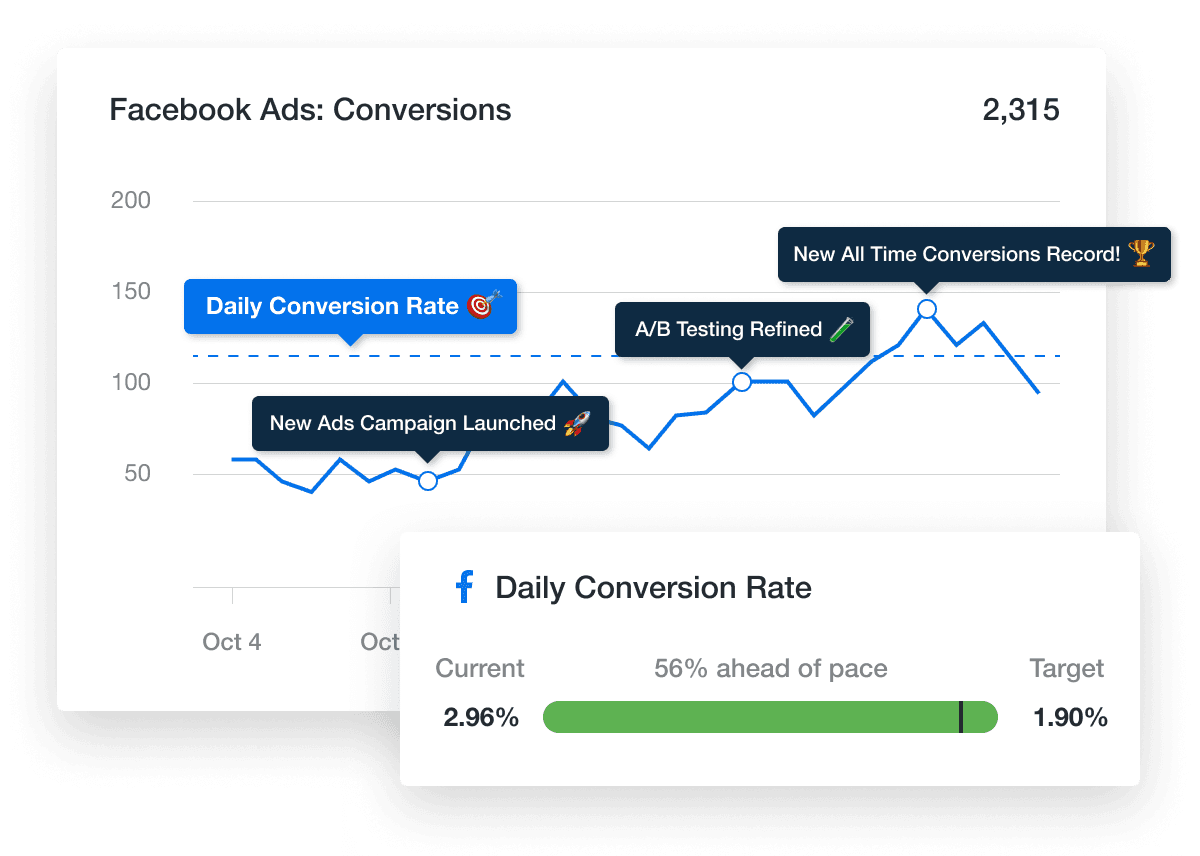
Use AgencyAnalytics to track campaign performance and goals. Create custom annotations and track progress across 80 marketing platform integrations–it’s free for 14 days.
Referral Traffic
Where are listeners coming from? They might be finding the podcast from Google search results, the company website or social media, or even from another podcast. Look at how much referral traffic is arriving and where it’s coming from.
Leads
Remember, perhaps the biggest podcast benefit is the ability to generate more qualified leads—listeners who then take an additional action like visiting a website to sign up for an email list or submit a form. Unique landing pages or UTM links help track how many podcast listeners clicked through to a website to interact more with the brand, making it easier to accurately track this metric.
Month-Over-Month Growth
The final podcast metric we recommend tracking is month-over-month growth. Measure the number of listeners each month and watch how the number changes. Ideally, you want to see steady growth long-term. If a sudden dip occurs after a new episode drops, it’s worth doing some investigating to determine the cause.
How To Improve Podcast Success
The benefits of a business podcast are undeniable. But if the podcast metrics aren’t up to snuff, what’s the next step? Take a look at these tips to improve performance.
Understand Your Target Demographic
You can’t create content that’s tailored to an audience if you don’t know who that audience is. Use surveys or podcast analytics tools to get a better handle on listeners—where they live, how old they are, and what they care about. This will help you plan out engaging content, and then share new episodes in the time and place where people are most likely to listen.
Improve Sound Quality and Professionalism
If you’re going to produce a podcast, it’s worth doing it right; listener retention rate will suffer if the quality of the podcast is poor.
But never fear: A professional-sounding podcast doesn’t have to break the bank. Small improvements like a high-quality mic, pop filter, and noise canceling headphones make a world of difference. Choosing the best recording and editing software to meet your needs will help as well. Script out podcast episodes before you record, and be sure to edit for clarity and conciseness.
Share Across Multiple Platforms
Repurpose podcast content to share on other channels. For example, post the video of full episodes on YouTube or Vimeo. Or pull out short soundbites to post as Instagram Reels or TikToks. This strategy is a win/win since it increases podcast reach while also contributing to further building the brand’s social media presence.
I have a whole list of topics and things that I want to talk about. I love doing podcasts. I think it benefits the client. I think the positives outweigh the negatives so, just talking about why behind it I think is really important.
Cori Kohlmeier, Owner and Co-founder, Advantage Marketing
Tracking Podcast Analytics
AgencyAnalytics provides a centralized location to track data from more than 80 marketing platforms. Is your client launching a podcast to support the growth of an online shop? Create customized dashboards and reports that showcase podcast performance on YouTube alongside Stripe metrics to directly demonstrate how each episode is directly influencing ecommerce sales.
With AgencyAnalytics:
The YouTube integration pulls information like YouTube subscribers, video analytics, and engagement into a single intuitive dashboard that helps you understand how video podcasts are performing.
Tap into Vimeo reporting with this integration that monitors a full set of metrics to show growth over time.
Don’t forget about short-form podcast content! The Instagram integration creates reports on your IG following and engagement.
Track the ads your clients are running with the Spotify Ads integration. Use real-time metrics to optimize campaigns and highlight results.
Takeaway
If you’re looking to generate more quality leads, a podcast is an excellent method to try. Producing regular podcast episodes will help you build a committed audience of listeners who will ideally become customers, too.
Whether you're managing your own podcast to get agency clients, or a client's podcast - the key to podcast success is tracking podcast metrics so you can make informed, educated decisions on where to take the podcast next.
If you’re feeling overwhelmed with tracking how a podcast is influencing other marketing analytics, start with AgencyAnalytics. We’ll track the most important metrics you need to know and deliver them in a beautiful, automated report—so your only job is recording that next episode. Sign up for a free 14-day trial and start tracking today.

Written by
Hailey is a full-time writer and content marketer based in Atlanta who specializes in providing unique insights into the worlds of wellness and digital marketing. A storyteller at heart, she is a self-admitted nerd about all things digital.
Read more posts by Hailey HudsonSee how 7,000+ marketing agencies help clients win
Free 14-day trial. No credit card required.




